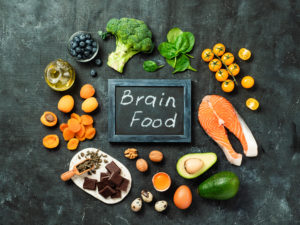 A healthy diet does much more than help you stay slim. Eating well helps your brain and body stay healthy and slows down the aging process.
A healthy diet does much more than help you stay slim. Eating well helps your brain and body stay healthy and slows down the aging process.
The protective elements of food should come as no surprise. The links between what you eat and your health keep getting stronger, and new research has highlighted four foods that significantly slow cognitive decline.
Advertisement
How does food influence cognition and mental capabilities? It can battle mental fog, improve memory, and potentially fight off or delay diseases like Alzheimer’s and other forms of dementia. These benefits are backed by plenty of scientific evidence.
A new study published in the Journal of Nutrition, Health, and Aging highlighted the four most important food groups for slowing down age-related cognitive decline. The foods were fruits, vegetables, nuts, and pulses (beans, lentils, and peas).
Perhaps this was expected. After all, these foods are repeatedly associated with nearly every preventative and health-promoting diet.
Researchers examined the eating habits of nearly 9,000 middle-aged to elderly participants in Canada. Participants underwent verbal fluency tests to assess cognition, which asked them to list as many words as possible within a given category.
Those who ate the least amount of the four food groups listed above were more likely to show cognitive decline than those who ate the most.
Previous research has linked memory benefits to walnuts. Blueberries have proven to increase activity in the brain. High-fiber beans can improve blood flow. And leafy greens, well, nothing else needs to be said about them.
Advertisement
Trying to include at least four cups of fruits and vegetables into your daily routine is optimal, while a daily handful of nuts can offer benefits.
Finding ways to include beans into your weekly diet, perhaps as a meat alternative, side, or salad, can help ensure you’re getting all the nutrients you need to maintain a healthy brain as long as possible.
Do you really need to think about the foods that help preserve your memory? Probably not. The real secret is figuring out how to feature them in your daily eating habits regularly.
